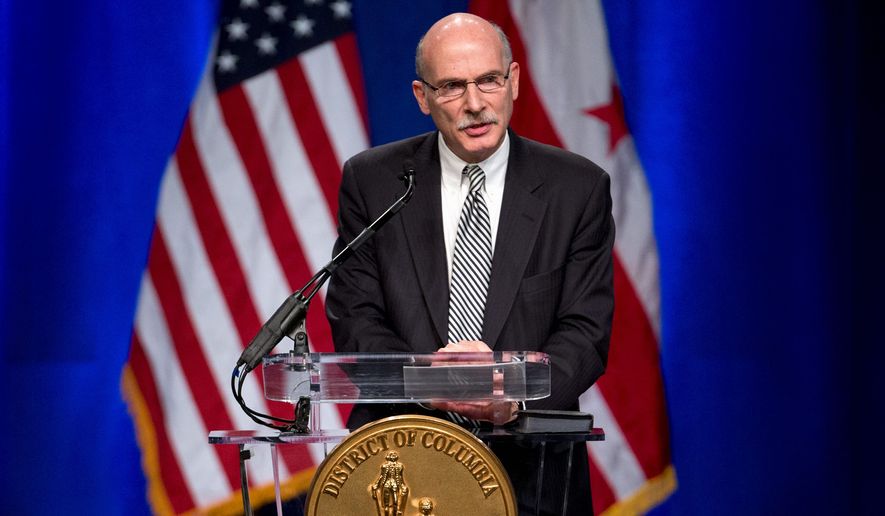The D.C. Council is pursuing a regulatory scheme for the sale and taxation of marijuana, scheduling hearings on proposed legislation that flies in the face of congressional attempts to prevent the District from loosening its drug laws.
City officials say council committees expect to begin hearings on the bill in early February — a move that will gauge how far D.C. lawmakers are willing to challenge Congress on the issue.
D.C. Council Chairman Phil Mendelson said the council should be in the clear to hold public meetings on the proposed legislation, which would codify regulations regarding marijuana that were not included in a voter-approved ballot initiative.
“All we’re talking about is a hearing,” Mr. Mendelson said. “I don’t think that’s inappropriate. And I think trying to muffle public discussion would implicate constitutional issues. It would be bad public policy.”
The District is still wrangling with Republican members of Congress over the fate the city’s marijuana legalization initiative, which seven out of 10 voters supported at the ballot box in November. Congress passed a spending bill in December that blocks the District from spending money to “enact any law, rule, or regulation to legalize or otherwise reduce penalties associated with the possession” of any schedule 1 drugs. City lawmakers have taken the legal stance that Initiative 71 was self-executing and took effect when voters approved it — well ahead of the adoption of the spending bill by Congress.
Enacting new laws regarding marijuana in the time since the spending bill was passed is different territory, leaving in question at what point city lawmakers would run afoul of the restrictions approved in the congressional budget package.
SEE ALSO: D.C.’s marijuana legalization initiative under review by Congress
The federal lawmaker who included the language blocking marijuana legalization in the federal spending bill doesn’t have a firm stance on how far through the legislative process D.C. lawmakers would legally be allowed to go.
“We haven’t thought in real detail about it,” said Chris Meekins, spokesman for Rep. Andy Harris, Maryland Republican. “One could argue that taking steps toward enacting would not be allowed.”
City lawmakers would like to be able to adopt additional laws regarding marijuana legalization because language in the approved ballot initiative leaves several loopholes. While the ballot initiative makes it legal to possess up to 2 ounces of marijuana and for D.C. residents to grow up to six marijuana plants in their homes, it does not legalize the sale of marijuana or set up any type of laws to govern sales. Without a regulatory structure, the District would not be able to collect taxes on what is expected to be a highly profitable industry.
The city’s ballot initiative is currently under a 30-day congressional review period — a standard for all D.C. laws — so Congress and the District have some time before they get into any legal tussles over Initiative 71.
The initiative is currently projected to become law on Feb. 26 and Mr. Meekins said as that 30-day period winds down, Mr. Harris’ office will likely develop a more definitive stance on other legal issues.
Others believe that the D.C. Council should be able to go through the entire legislative process, up until a final vote on the matter, before they run afoul of the law.
SEE ALSO: D.C. Council to prioritize statehood, marijuana law
“The Harris amendment just says that they can’t spend any money to enact a law,” said Dan Riffle, director of Federal Policies at the Marijuana Policy Project. “If they were to enact other measures that would conceivably run afoul of the amendment.”
Mr. Mendelson declined to speculate at what point in the legislative process the council could find itself on shaky ground.
“I think we should look at this one step at a time,” he said.
The D.C. Office of the Attorney General declined to comment on the matter.
• Andrea Noble can be reached at anoble@washingtontimes.com.




Please read our comment policy before commenting.